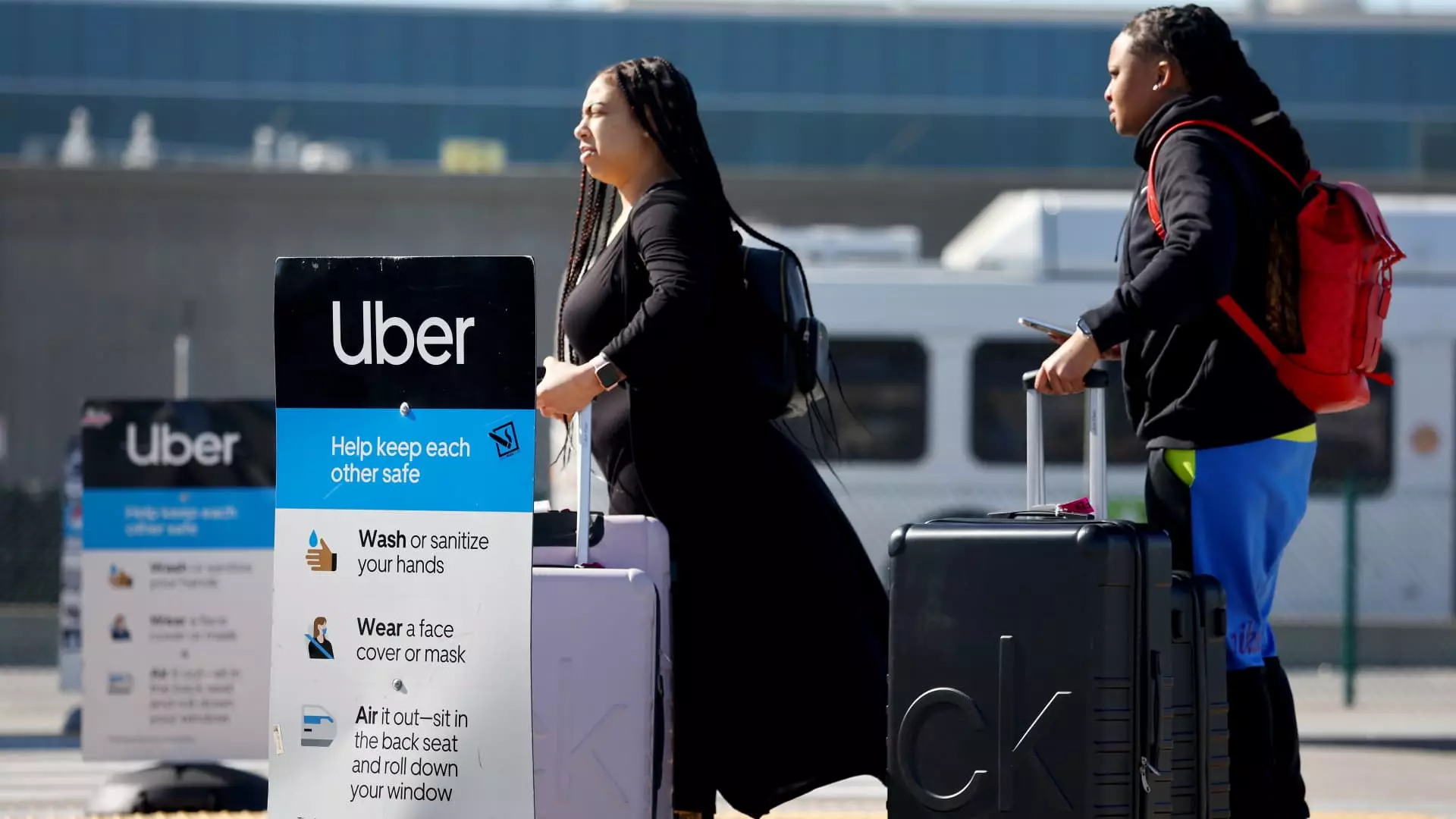In a notable shift within the airline industry, Delta Air Lines has officially announced a partnership with Uber, marking the end of its multi-year collaboration with Lyft. This strategic move, set to kick off this spring, indicates Delta’s intent to enhance its SkyMiles loyalty program by providing an array of transportation options that can seamlessly integrate with its customers’ travel experiences. This transition not only reflects Delta’s commitment to innovating its services but also highlights the competitive landscape of ride-hailing services vying for partnerships with major airlines.
Delta’s change in loyalty partners suggests a calculated approach that allows its customers more opportunities to earn rewards. The airline has laid out specific earning structures: one SkyMile per dollar spent on UberX airport rides, two miles for premium services like Uber Comfort and Uber Black, and three miles on Uber Reserve trips. Additionally, Delta SkyMiles members can accumulate miles from Uber Eats orders exceeding $40, thereby expanding the benefits of the loyalty program beyond transportation to include food delivery.
Loyalty programs have evolved significantly amidst an increasingly competitive aviation environment. Airlines consistently seek to add value for their customers through partnerships, thereby creating a compelling case for travelers to remain loyal. Delta’s inclusion of major names like Starbucks, Hertz, and now Uber into its SkyMiles program is a testament to the airline’s proactive strategy in enhancing customer engagement. These partnerships serve dual purposes: they foster customer loyalty while simultaneously generating additional revenue streams for the airlines.
Uber’s market dominance, boasting over 161 million monthly active users compared to Lyft’s 24.4 million, coupled with the significant ride volume, demonstrates why Delta has opted for this partnership. The sheer scale of Uber’s operations opens up a broader platform for SkyMiles members to earn rewards, thus catering to a growing customer base which increasingly seeks versatile options for travel and delivery services.
Delta’s decision seems intricately linked to its financial goals as well. The airline’s investor relations have expressed optimism regarding its partnership with American Express, which not only provides credit card offerings tied to travel expenses but also work in symbiosis with Uber. The expected revenue from this partnership is projected to reach $7 billion in 2024, showcasing the strategic importance of forming alliances that enhance financial performance. This aspect intensifies the need for Delta to align itself with the most advantageous partners within the ride-hailing sector.
Conversely, Lyft has acknowledged this shift as a potential setback, stating that their previous collaboration with Delta allowed customers to accumulate significant miles over the years. Nonetheless, Lyft is not sitting still; it is actively seeking new alliances with brands that align with its customer-focused philosophy, ranging from major airlines to other consumer brands like DoorDash and Hilton. The resilience of Lyft in the face of competition emphasizes the cut-throat nature of this market landscape.
The newly launched partnership between Delta and Uber brings forth the potential for enhanced customer experiences through technology integration. At the recent CES tech show in Las Vegas, Delta introduced plans for advanced technological innovations, including an AI-powered travel assistant within its app. Such features could provide added layers of convenience for customers, making it easier to manage travel itineraries and ride bookings in a cohesive, user-friendly environment.
Overall, the Delta-Uber collaboration is poised to redefine travel and food delivery experiences for frequent flyers while also enhancing loyalty program attractiveness. As the airline industry continues to adapt and evolve, these partnerships will likely remain crucial in shaping customer expectations and operational strategies. Continuous innovation and customer engagement will be the keys in maintaining relevancy and satisfaction in an ever-competitive market.

Leave a Reply